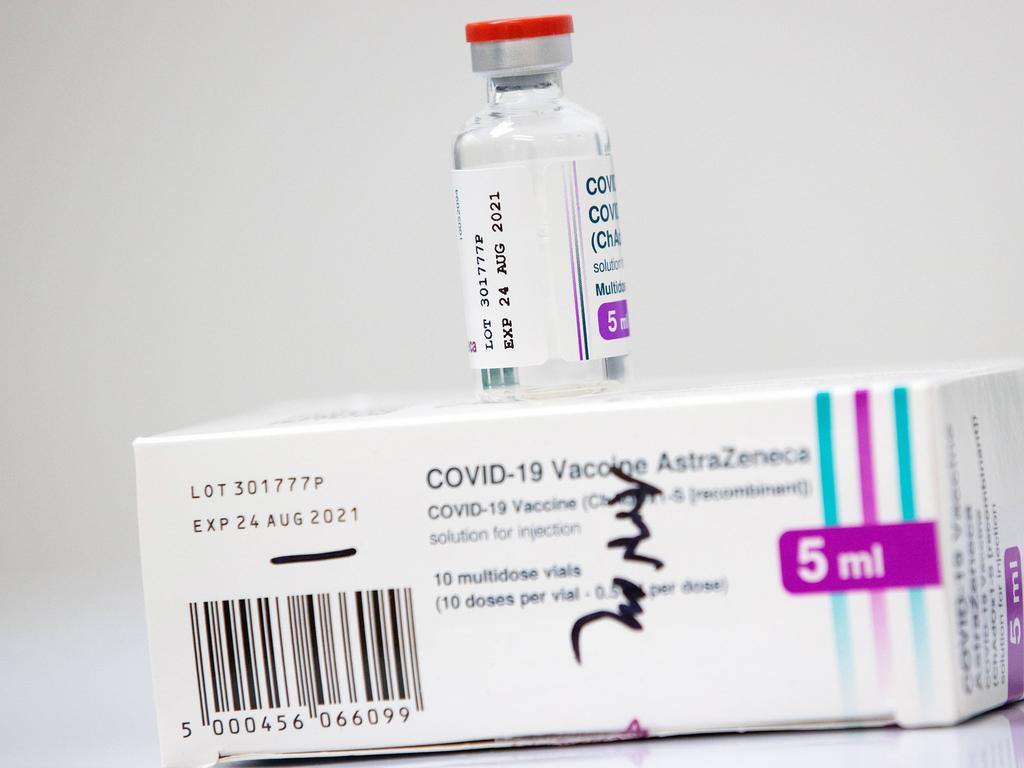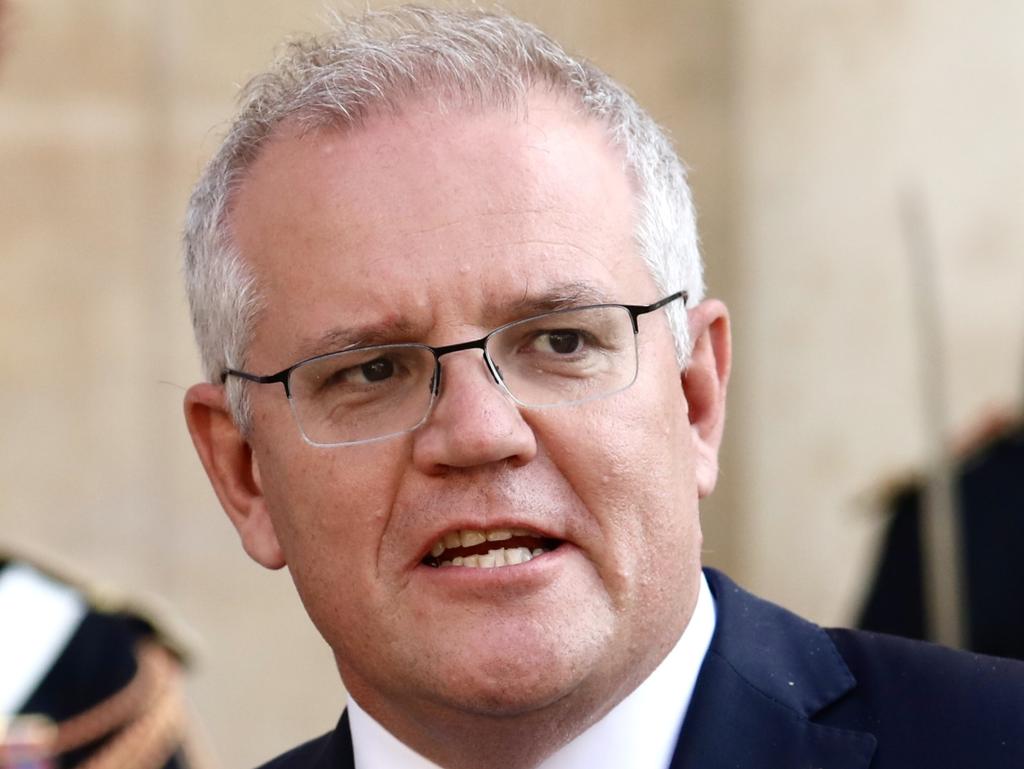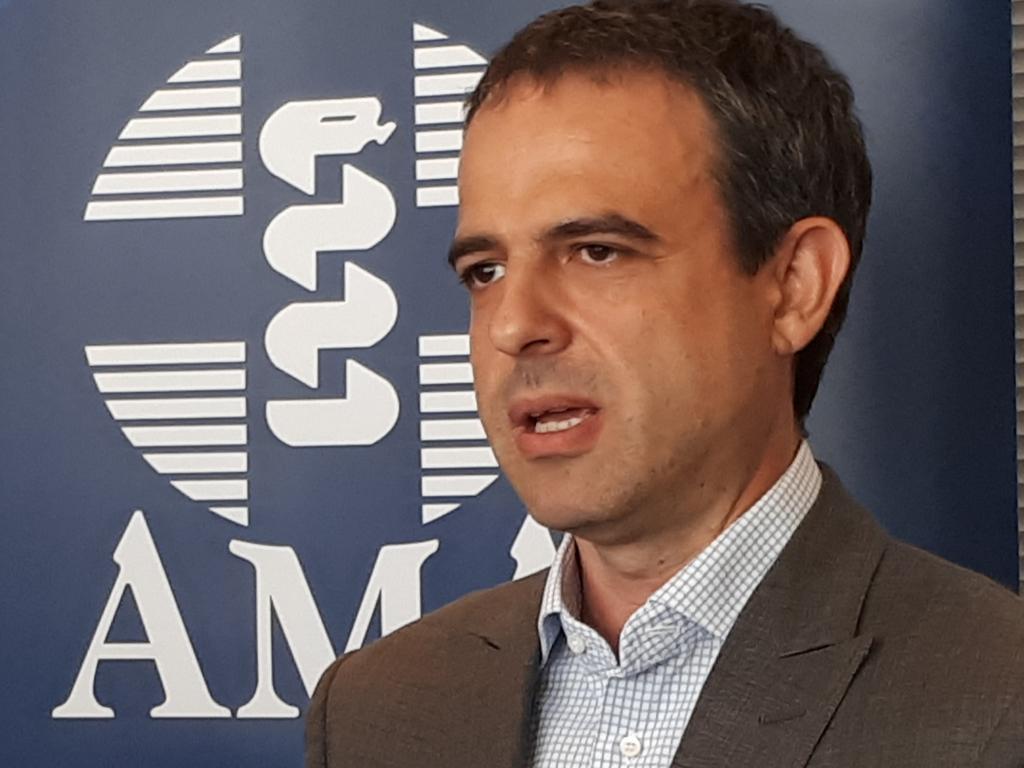Scott Morrison says all Australians can now get vaccinated ... with one catch
Scott Morrison has said that everyone can go to their GP and get the Covid-19 vaccine, however there is just one catch.
Prime Minister Scott Morrion said national cabinet has agreed on a new no-fault indemnity scheme for GPs to give the AstraZeneca vaccine to Australians under the age of 60, who are willing to accept the extremely rare blood clot risk.
“This relates to encouraging Australians to go and chat to their GP about their vaccination, and to have their vaccination administered,” he said.
“Now, the Australian Technical Advisory Group on Immunisation (ATAGI) advice, talks about a preference for AstraZeneca, to be available, and made available to those as preferred for those over 60, but the advice does not preclude persons under 60 from getting the AstraZeneca vaccine.

“And so if you wish to get the AstraZeneca vaccine, then we would encourage you to go and have that discussion with your GP, and we’ve already made announcements to support those additional consultations with the GPS so you can have that conversation.
“And secondly, we are also providing the indemnity scheme for those general practitioners, so they can actively engage with you, and you can make the best decision for your health.”
Asked if this means that people under 40 can now go to their GP and get the AstraZeneca vaccine immediately, Mr Morrison said, yes.
“To get access to AstraZeneca, if they’re willing to take on that risk, if they wish to go and speak to their job or their doctor and have access to the AstraZeneca vaccine, they can do so. So the answer is yes, they can go and do that.”
ATAGI had advised a preference for under 40s to get the Pfizer vaccine.
However, at the moment those under 40 without serious health conditions are only able to get AstraZeneca.
The vaccine roll-out has been slow in Australia because of supply problems and concerns about blood clots with the AstraZeneca vaccine.
The clotting disorder is called vaccine-induced thrombotic thrombocytopaenia (VITT) or thrombosis with thrombocytopenia syndrome (TTS), however the likelihood of getting it is extremely low.
RELATED: Jabs now mandatory to fight outbreak
RELATED: Australia turns on NSW over outbreak

As of last month in Australia, out of 2.1 million doses of the AstraZeneca vaccine, 24 cases of TTS have been reported. So the risk of TTS is approximately one in 88,000.
These figures are similar to those reported in the UK, Europe, the Middle East and Canada.
Although early reports from Europe indicated approximately 20 per cent of cases of TTS were fatal, in Australia, to date, one out of 24 TTS cases has been fatal, so just over 4 per cent.
Australia has registered just over 30,500 Covid-19 cases and 910 deaths.
The blood clotting issues with the AstraZeneca occurs because the vaccine can activate platelets, or small cells in our blood that help form blood clots and stop bleeding.
Activated platelets can release a protein called platelet factor 4 (PF4) in some people, which binds to the AstraZeneca vaccine. It is believed that the binding can cause the immune system to activate more platelets, making them stick together.
The blood clots in TTS occur in unusual locations such as the veins in the abdomen and brain. They typically occur four to 30 days days after vaccination.

AMA President, Dr Omar Khorshid said the risks of serious complications, including clotting, from the AstraZeneca vaccine are very low and Australia is now very good at detecting clots in patients who’ve had the AstraZeneca vaccine.
“People who have had a first dose of Astra Zeneca must still have their second dose as recommended. The overseas evidence clearly shows that two doses of Astra Zeneca are needed to protect people against COVID-19 variants of concern including the Delta strain,” he said.
“With hundreds of millions of doses of AstraZeneca being administered in countries all over the world, we also know that the risk of clotting in second doses is negligible, about 1.5 in a million.
“People who are unsure about the benefits of vaccinations should speak with their GP who can provide advice and support to help people come to an informed decision about vaccination.”



